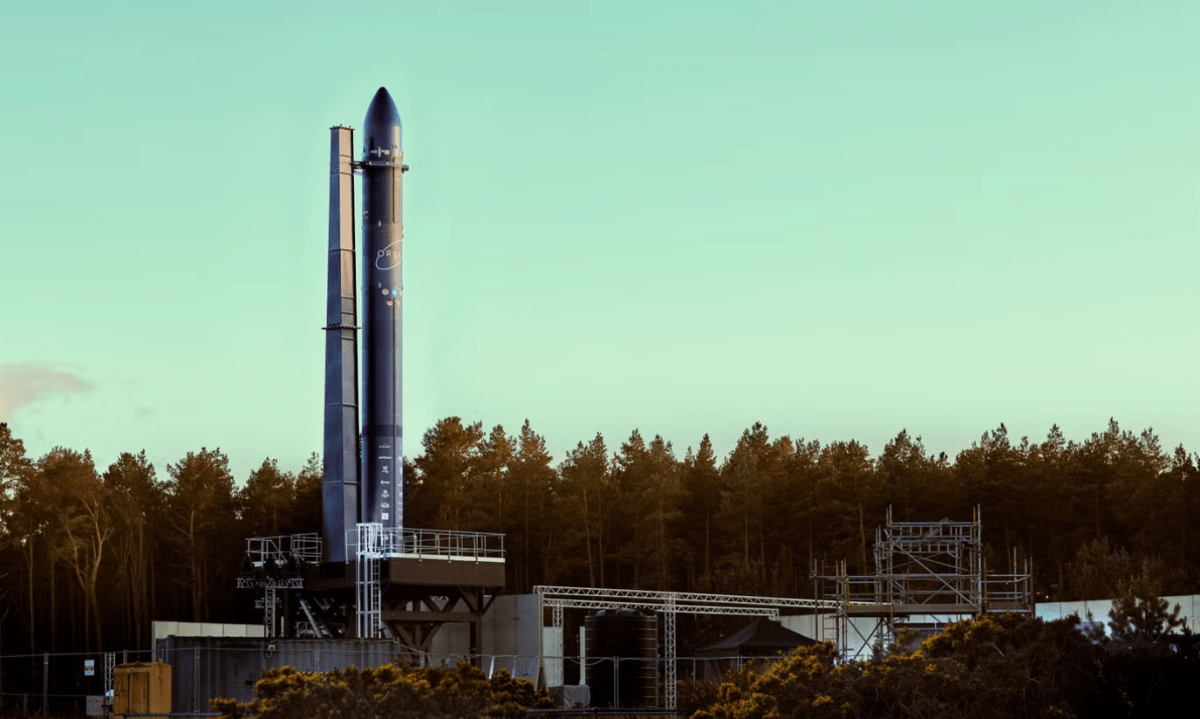At the Farnborough International Airshow six years ago, the United Kingdom made a major push to become a launch country. The U.K. Space Agency endorsed the development of Sutherland Spaceport, a vertical launch site in northern Scotland, and awarded contracts to Lockheed Martin and the launch startup Orbex to conduct launches there. Separately, Cornwall Airport Newquay, also known as Spaceport Cornwall, announced an agreement with Virgin Orbit to host LauncherOne missions there. Within a few years, it appeared, rockets would be launching regularly from British soil.
Farnborough frustrations
This year at Farnborough demonstrated that, like so many other things in space, things don’t go according to plan. To date, the U.K. has hosted one orbital launch attempt, a LauncherOne mission from Cornwall. However, the upper stage malfunctioned a few minutes into the flight, causing the rocket to plummet back to the Atlantic Ocean. Virgin Orbit itself plummeted, filing for bankruptcy less than three months later.
Sutherland Spaceport is finally under construction after years of delays, now as a site to be used solely by Orbex. Lockheed Martin has instead elected to perform its “U.K. Pathfinder” launch from another site, SaxaVord Spaceport in the Shetland Islands, using an RS1 rocket from ABL Space Systems. A scale model of ABL’s RS1, with the U.K. Space Agency logo on it, was on display at Lockheed’s booth in the small “Space Zone” corner of the show’s sprawling exhibit hall — just as ABL revealed a real RS1 suffered irreparable damage during tests ahead of a launch from Alaska.
Optimism amidst turbulence
Despite the delays and failures, U.K. officials and executives remain cautiously optimistic that the launch industry will find its footing in the country. The failed LauncherOne was a setback, acknowledged Matthew Archer, director of launch at the U.K. Space Agency, in an interview at the show. But he said that, in retrospect, Virgin Orbit had an “investment risk” that put the company’s future in question even if the launch had been a technical success.
“The key thing for that first mission was always going to be exercising, stress testing, our ability to license, and Virgin Orbit definitely did a lot of stress-testing of that process,” Archer said. That provided lessons for future launches, such as negotiating with neighboring countries for access to airspace in crowded North Atlantic aviation corridors.
The U.K. Civil Aviation Authority (CAA), which regulates launches, agreed. “Virgin Orbit’s mission didn’t do what it hoped it would do, but for us it assured that entire system does work from end to end,” said Colin Macleod, head of U.K. space regulation at the CAA, in another interview.
That has helped refine the process for future applicants, of which he expects several. “We’ve got four potential orbital launch companies that have got plausible ambitions to launch in the next 18 months,” he said.
He didn’t name the companies, but at the top of the list is Germany’s Rocket Factory Augsburg, which plans to carry out its first orbital launch from SaxaVord in the fall. The company is busy testing the first stage there, said Scott Hammond, SaxaVord’s deputy CEO, as other components of the rocket and its payloads arrive there.
Orbex hopes to follow with the first launch of its Prime small rocket from Sutherland next year. Both the launch site and the rocket are taking shape, CEO Phillip Chambers said at Farnborough, but he was hesitant to be more specific about a launch date than some time in 2025. “But I do want it to be 2025.”
Archer said that while several other sites beyond Sutherland and SaxaVord had previously expressed interest in hosting spaceports, they are unlikely to be developed. Those two spaceports are approved to host a combined 42 launches annually, “enough to see them through the next couple of decades.”
“It definitely is a struggle for Spaceport Cornwall,” he added, citing the lack of horizontal launch providers. But spaceport officials seem undaunted: their booth at Farnborough emphasized their desire to become a test site for hypersonic vehicles, the Virgin Orbit experience all but forgotten.
This article first appeared in the August 2024 issue of SpaceNews Magazine.
